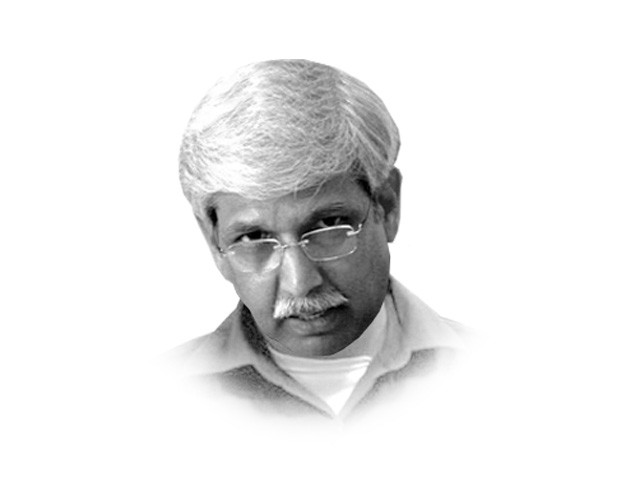Kashmir — seizing the moment
Mainstream political parties in Pakistan are more concerned with mainland politics than with Kashmir itself.

Kashmir is not a Pandora’s box to be left undisturbed for fear of knotty tangles. Instead, it is a ball of wool that has been layered over the years with deliberate obfuscation such that its core now lays hidden and conveniently forgotten. The recent elections in Azad Kashmir brought that to the fore when the real warring parties over electoral victory were the PPP and the PML-N. Not only that, they were the two principal winners whose electoral agenda revolved around politics of the Pakistani mainland; exhibit A — Nawaz Sharif’s uber-critical speech about Zardari’s performance. Not one mentioned a way forward in resolving the dispute. Save one by Prime Minister Gilani where he mentioned that his party will continue to fight for a thousand years to win Kashmir. I heard the same rant a few days later by a clearly outdated and antiquated military type in a Pakistani setting; but that is forgivable — one, he was military and two, he is beyond his sell-by date.
The Kashmir debate has found moral underpinning over the years. What began as a clear territorial dispute — one that also had people attached who needed a chance to declare their preference of association as the fundamental principle, but who became a convenient vehicle of interstate politics soon — was further coloured with the overhang of ‘human rights’ morality. There is the case of divided families, of parents longing to see their children, of marriages that need to be consummated, of people who need to move to the other side for business, trade and the simplest human urge to travel and see. Somewhere along the way, such concerns have taken a back seat. Politics instead has imbued the sensitivities of the local hopefuls, each seeking his rise to pelf and power. India boasted a 60 per cent turn-out in Jammu and Kashmir’s 2008 elections and proclaimed wide affirmation of its accession to India. Even then, Syed Ali Gilani and the Hurriyat mix continue to chant azadi as a reminder to their core concern, howsoever warped with time and subtle mutation.
The only serious effort on Kashmir was by a military dictator. He ventured far beyond the ordinary. His four-point proposal included making “borders irrelevant” between the two Kashmirs, joint “supervision mechanisms” of India, Pakistan and Kashmir when “self-governance” by the Kashmiris finally becomes a reality, and a “phased withdrawal” of troops from both sides. He may have been making amends for his Kargil faux pas, but move he did to break the inertia. The process got disrupted by Pakistan’s home grown troubles of 2007 and then finally by the Mumbai terror attacks. Since the two sides have reconnected and amble to resurrect some sanity, the back-channel four-point process is where India wishes to start from. This only goes to prove that in the complex game of geopolitics, seizing the moment is as important as creating a moment. Pakistan’s political class and Musharraf’s successors in the government proffer a pitiful lament on the ownership of the four-point process characterising it illegitimate in origin. The other option is Nawaz’s Chenab formula; India remains wary because it will sanctify division based on communal identity. Lib-left, where lies your fancy?
Published in The Express Tribune, July 7th, 2011.















COMMENTS
Comments are moderated and generally will be posted if they are on-topic and not abusive.
For more information, please see our Comments FAQ